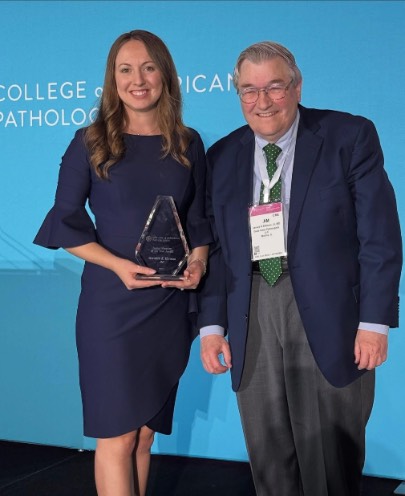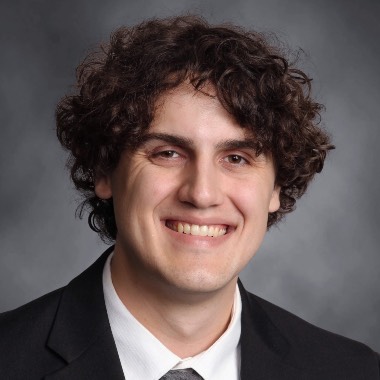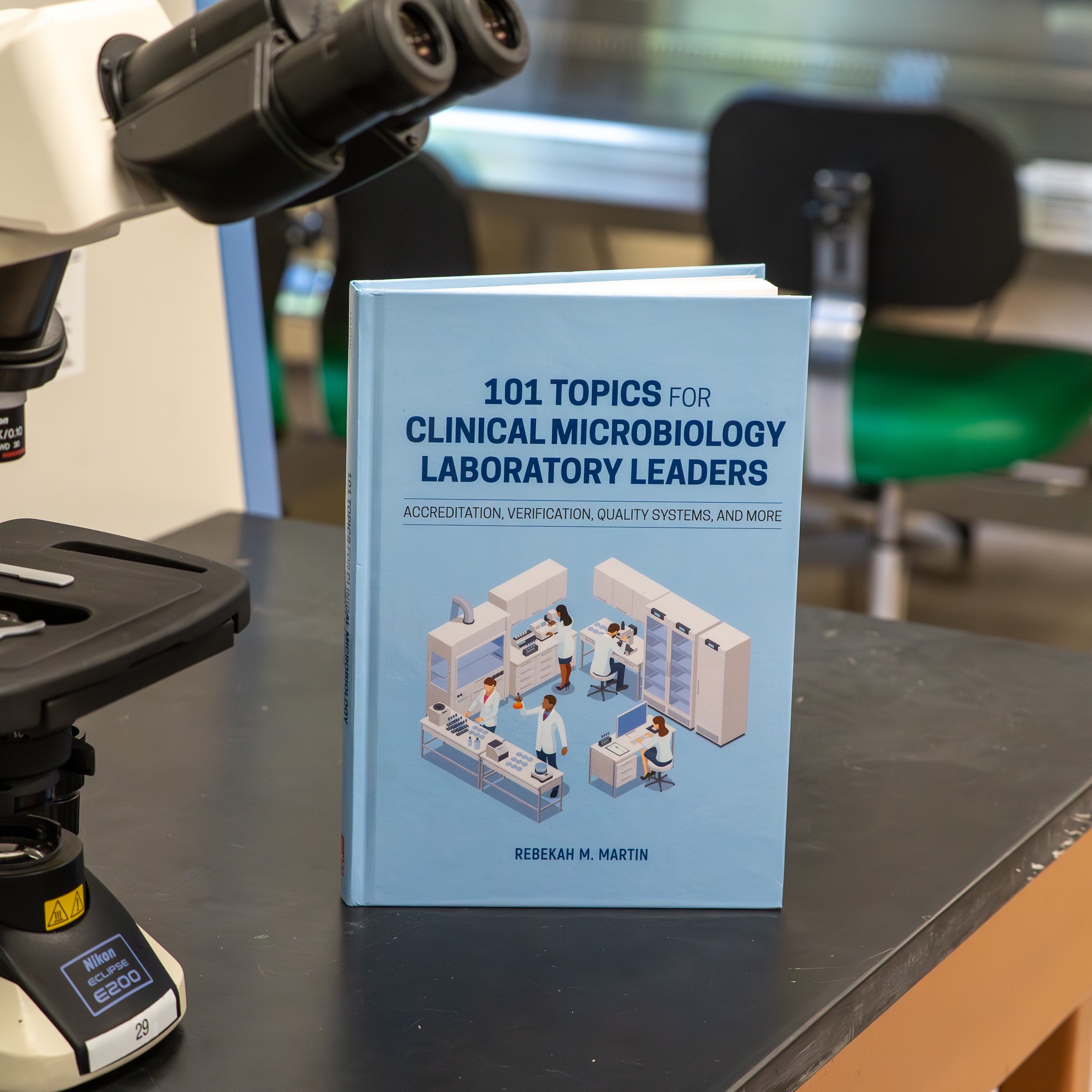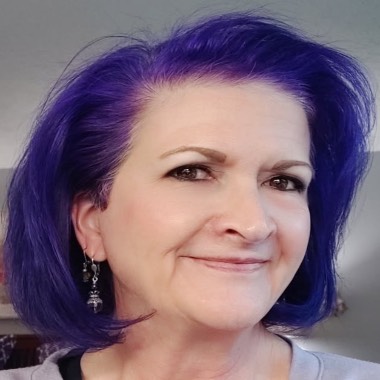MSU student earns program's first Fulbright grant
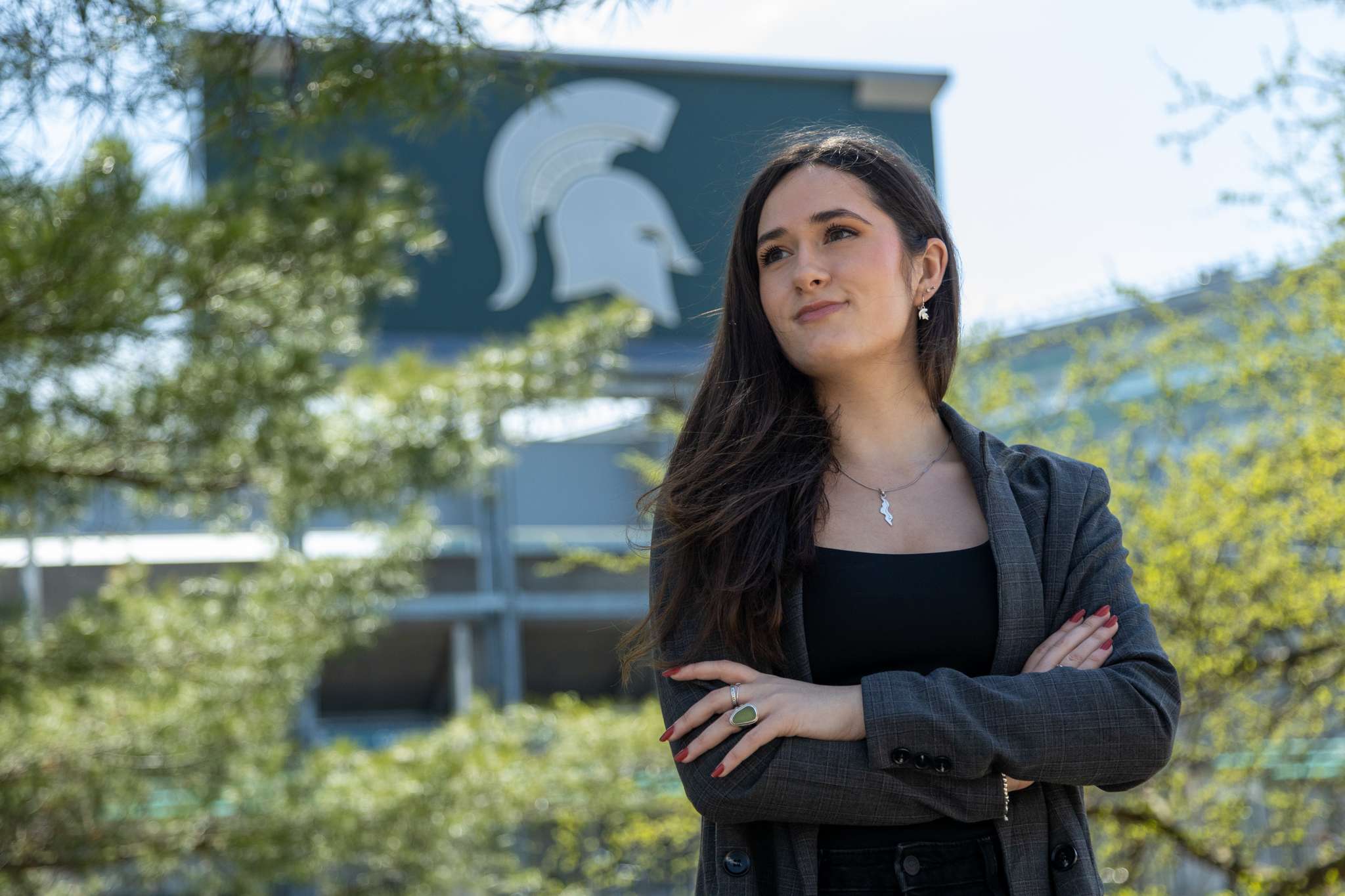
Katie McGraw was 10 years old when she first watched the TV show Monsters Inside Me with her sister and dad.
“Monsters Inside Me highlighted cases of people with unusual or very serious infections, which I should not have been watching ,” McGraw said.
But family time sparked something bigger than just a weekly tradition.
“Something clicked inside of me,” McGraw said. “Should I be an epidemiologist? Should I be a virologist?”
Now, the fourth-year medical laboratory science student at Michigan State University is heading back to Malawi for a third time after being awarded a Fulbright Foreign Scholarship overseen by the United States Department of State’s Bureau of Educational and Cultural Affairs. She will be studying the relationship between blood type and the severity of malaria illness in children.
“I wanted to join the fight against malaria,” McGraw said, who is the first undergraduate Fulbright awardee for the Biomedical Laboratory Diagnostics Program, or BLD.
Joy Campbell, Fulbright Program Adviser for Michigan State University, said she has one of the best jobs on campus because she gets to work with outstanding students like McGraw every day.
“Katie absolutely brims with enthusiasm for her Fulbright project,” Campbell said. “Her prior experiences in Malawi helped, but I believe it was her clear desire to return because she understands the pressing need for further malaria research that made her application stand out.”
According to its website, the Fulbright U.S. Student Program expands perspectives through academic and professional advancement and cross-cultural dialogue. Participants work, live, and learn in the area they have selected while conducting research, teaching English, or continuing graduate study.
The program provides awards to approximately 8,000 students, scholars, teachers, artists and professionals each year from the United States and over 160 countries. Among the ranks of Fulbright alums are 62 Nobel Prize recipients, 80 MacArthur Foundation Fellows, 89 Pulitzer Prize winners, and 42 current or former heads of state or government.
“Her connections to — and affection for — people there, both in and out of the lab, made her a fantastic Fulbright candidate,” Campbell said. “Katie truly embodies the Fulbright notion of bringing people and nations closer together.”
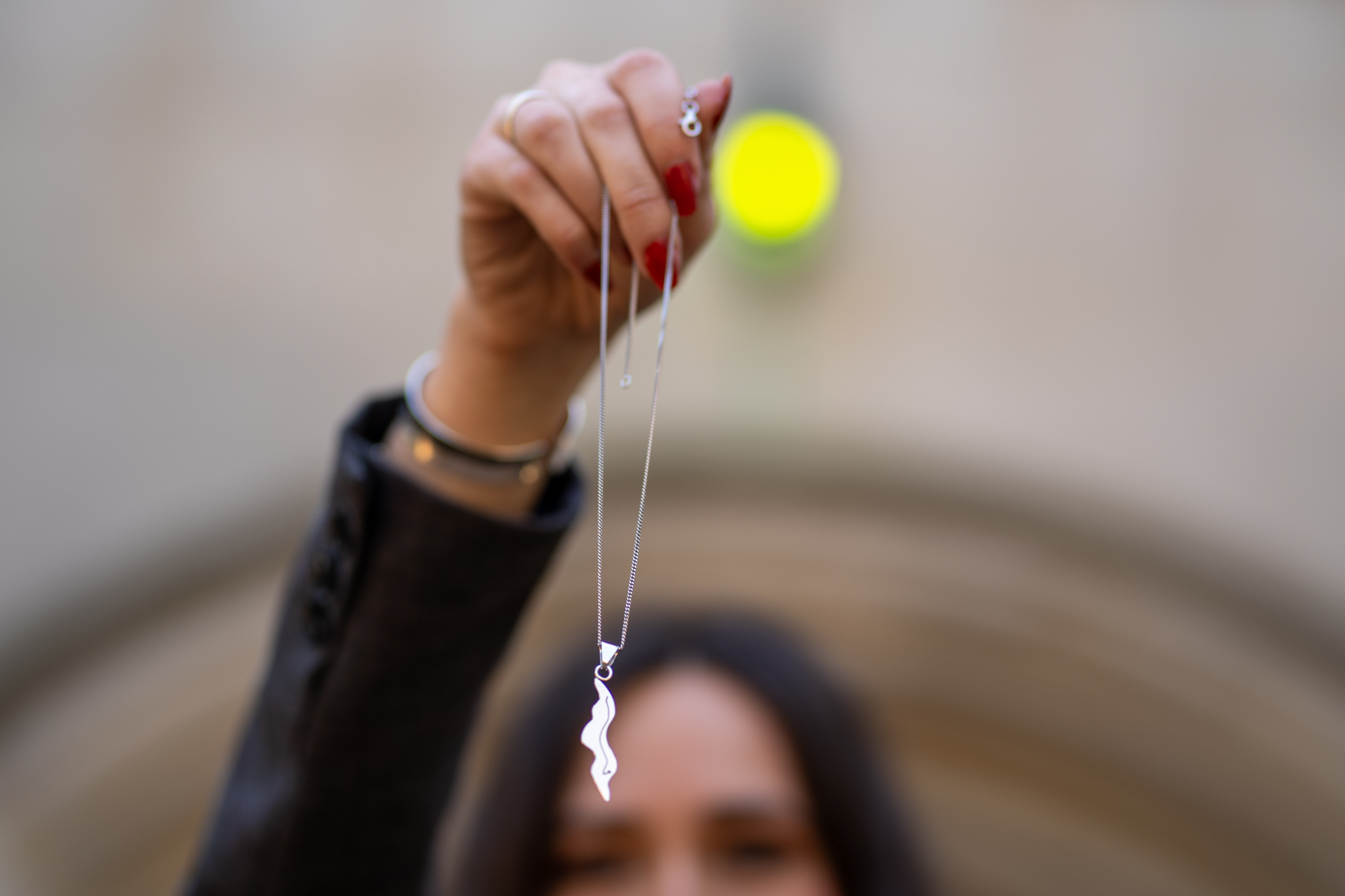
(By: Paul Henderson)
Why Malawi?
When McGraw was looking at programs while attending orientation at Michigan State University, a class caught her eye.
“I was scanning really quickly through the curriculum and all of a sudden my eyes stopped,” McGraw said. The class was BLD 366: Infectious Disease in East Africa.
McGraw had not heard of BLD, but everything it covered seemed interesting, from microbiology to immunology; she was sold.
Toward the end of McGraw’s second year on campus, Yukari Nishizawa-Brennen, Ph.D., a clinical chemistry faculty in the BLD program, put up a flyer for the study abroad course Disease in East Africa in her class. There was only problem: the application was due at midnight.
“I called my mom, and she said, ‘Do it, apply,’” McGraw said.
With help from her mom and her roommate Madeline, she applied an hour before the deadline.
Shortly after, McGraw received an email from Frances Downes, Ph.D., a retired faculty member with BLD, and Karl Seydel, M.D., Ph.D. an associate professor in the Department of Osteopathic Medical Specialties in the Michigan State University College of Osteopathic Medicine, about interviewing for the program.
“Katie was one of the youngest students we accepted into the program,” Downes said. “However, it was clear that she had a keen interest in the program and was willing to work hard to get prepared for the academic challenges of the program.”
Weeks later, McGraw was on a plane heading to Malawi.
Getting connected
McGraw was determined to learn and interact with the Malawian laboratory staff.
Seydel said McGraw made it a point to connect with the Malawians.
“She formed friendships with some of the Malawian laboratory technicians that have continued to this day,” Seydel said.
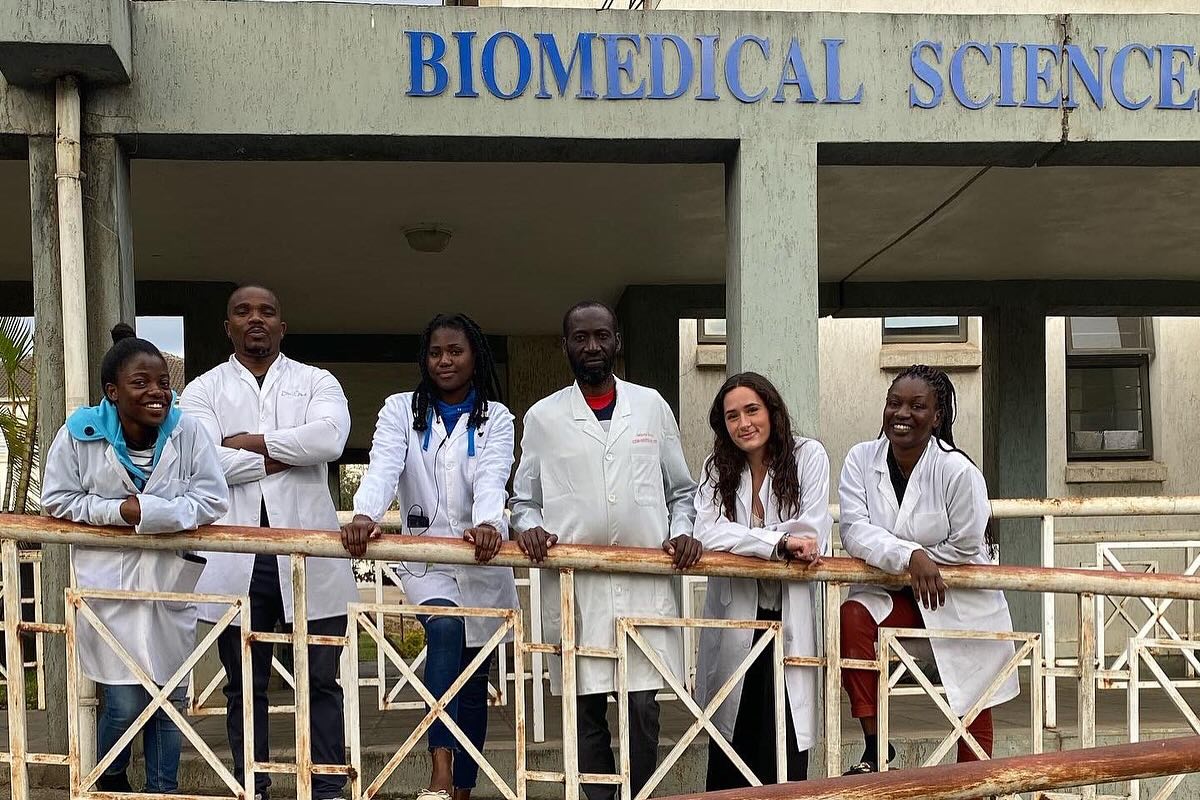
Not only was McGraw learning from the lab crew in Malawi, but she was also applying her knowledge from BLD.
“We were talking to some of the directors of the labs, and one of them just randomly started quizzing me, and I got the questions right,” McGraw said.
Seeing the application of her learning reignited her passion for the field.
“All of my BLD classes aligned so perfectly with what I was doing in Malawi,” McGraw said. “It gave me the passion to keep going.”
Upon completing her study abroad, McGraw wanted to return, and Terrie Taylor, D.O., noticed. Taylor is an MSU Research Foundation Professor and University Distinguished Professor of Tropical Medicine in the College of Osteopathic Medicine.
“She was determined to return and to continue working in the lab,” Taylor said.
And McGraw did return to Malawi the following summer to work with Seydel and Taylor.
Taylor and Seydel are both part of the Blantyre Malaria Project.
“It was so inspiring to see people who were so passionate about something that I was so nerdy about all my life,” McGraw said of Seydel and Taylor. “To see that people have dedicated their entire lives — they're very badass examples of people in science.”
Fulbright achievement
McGraw said she felt like she was going to combust waiting to hear if she had won the grant.
“I wanted this thing more than anything I ever wanted,” McGraw said.
She said Seydel, Taylor, and Campbell worked through 10 revisions of her application.
“They cared so much,” she said.
Seydel said when he announced McGraw would be returning for a third time, the laboratory team had quite the reaction.
“All of them remembered her and were extremely excited to hear of her return,” Seydel said.
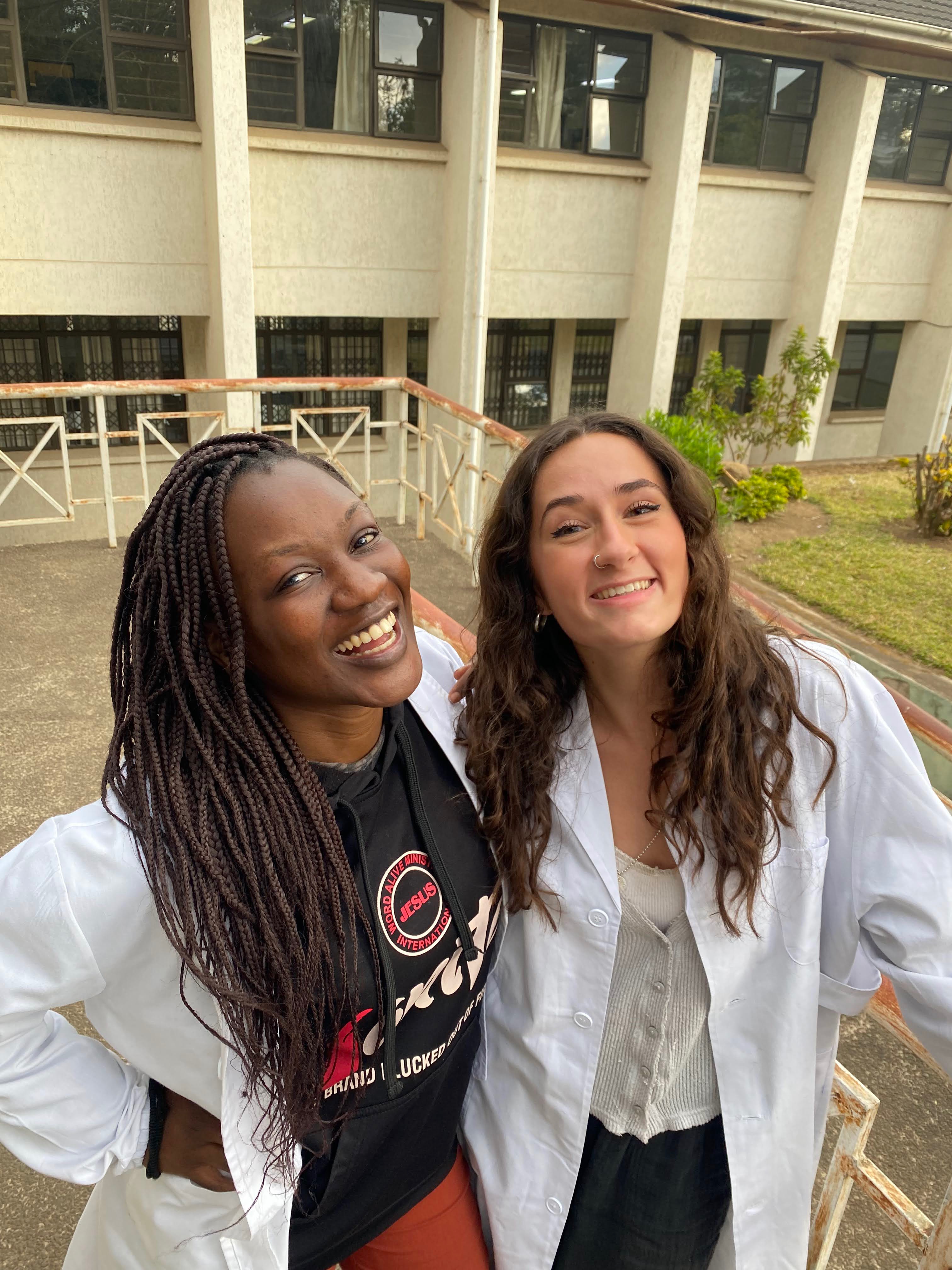
(Courtesy photo: Katie McGraw)
McGraw hopes to begin her nine-month appointment in Malawi in early 2025 after completing her internship in medical laboratory science at Michigan Medicine in Ann Arbor.
“As an educator, it is gratifying to watch Katie grow in personal and academic confidence,” Downes said. “On her second trip to Malawi for undergraduate research, she worked more independently, and the Fulbright is a natural next step in a promising career for Katie.”
McGraw said she is excited to reconnect with everyone, continue learning the spoken language Chichewa, and begin her research on malaria.
“I used to dream about stuff like this,” McGraw said.
